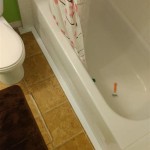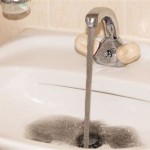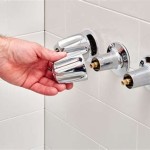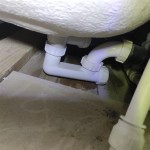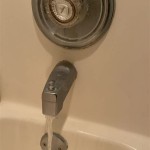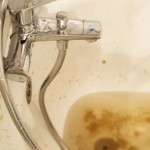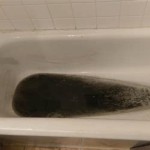Will Vinegar Unclog A Bathtub Drain?
A clogged bathtub drain is a common household problem that can disrupt daily routines and create unsanitary conditions. Many individuals seek cost-effective and readily available solutions before resorting to professional plumbing services. Vinegar, specifically white distilled vinegar, is frequently mentioned as a potential remedy for minor drain blockages. This article examines the effectiveness of vinegar in unclogging a bathtub drain, detailing its properties, limitations, and appropriate usage.
The primary cause of bathtub drain clogs typically involves a buildup of hair, soap scum, skin flakes, and other debris. These materials accumulate over time, attaching to the drainpipe walls and gradually restricting water flow. In severe cases, the accumulation can lead to complete blockage, resulting in standing water in the bathtub after each use.
Commercial drain cleaners are available, often containing harsh chemicals designed to dissolve organic matter. However, these chemicals can be corrosive to pipes, potentially causing damage and environmental concerns. Therefore, a natural alternative like vinegar appeals to many homeowners seeking a gentler approach.
Understanding the Properties of Vinegar
Vinegar is a diluted solution of acetic acid, typically containing around 5-8% acetic acid. Acetic acid possesses mild acidic properties capable of dissolving certain types of organic materials and mineral deposits. The acidity of vinegar is measured by its pH level, with a lower pH indicating higher acidity. White distilled vinegar, the most common type used for cleaning, is generally preferred due to its lack of color and potential staining properties compared to other vinegars.
The effectiveness of vinegar in unclogging drains relies on its ability to break down the bonds holding the accumulated debris together. Soap scum, for example, is formed when soap reacts with minerals in hard water, creating a sticky residue. The acetic acid in vinegar can help dissolve this residue, allowing it to be flushed away with water.
Furthermore, vinegar possesses antibacterial and antifungal properties, contributing to a cleaner drain environment. This can help prevent the formation of biofilms, which are communities of microorganisms that can contribute to drain clogs and unpleasant odors.
However, it is crucial to remember that vinegar is a relatively weak acid. Its effectiveness is limited to treating minor clogs primarily composed of easily dissolvable materials. For more stubborn blockages or those involving inorganic materials like mineral buildup or foreign objects, vinegar may not provide a sufficient solution.
The Vinegar and Baking Soda Method
A widely recommended method for using vinegar to unclog a bathtub drain involves combining it with baking soda. Baking soda, also known as sodium bicarbonate, is a mild alkali. When combined with vinegar, it creates a chemical reaction that produces carbon dioxide gas. This fizzing action can help loosen and dislodge debris within the drainpipe.
The general procedure involves the following steps. First, pour approximately one cup of baking soda down the drain. Second, follow with one cup of white distilled vinegar. Immediately after adding the vinegar, cover the drain opening with a plug or cloth to contain the fizzing action within the pipes. Allow the mixture to sit for at least 30 minutes, or preferably longer, such as overnight. After the waiting period, flush the drain with hot water for several minutes to wash away the loosened debris.
The effectiveness of this method relies on several factors, including the severity of the clog, the composition of the blockage, and the temperature of the water used for flushing. In some cases, repeating the process may be necessary to achieve the desired result. If the clog persists after multiple attempts, alternative solutions should be considered.
It is essential to note that while the baking soda and vinegar method is generally considered safe for most types of plumbing, caution should be exercised when dealing with older or fragile pipes. The pressure generated by the fizzing action could potentially weaken or damage compromised pipes. It is always advisable to test the method in a small, inconspicuous area first before applying it to the entire drain system.
Limitations and Alternatives to Vinegar
Although vinegar can be effective for minor drain clogs, its limitations should be recognized. It is not a suitable solution for severe blockages or those involving materials that are not readily dissolved by acetic acid. For instance, a large accumulation of hair entangled around a drain stopper or a solid object lodged in the pipe will likely require alternative methods.
Furthermore, the acidity of vinegar can be neutralized by alkaline substances commonly found in drainpipes, such as soap residue and mineral deposits. This neutralization reduces the effectiveness of the vinegar in dissolving the clog. Therefore, it is crucial to use vinegar in conjunction with hot water to help flush away these neutralizing substances.
When vinegar proves ineffective, several alternative solutions can be considered. A simple plunger can often dislodge minor clogs by creating pressure and suction. A drain snake, also known as a plumbing snake, is a flexible tool that can be inserted into the drainpipe to break up or retrieve the blockage.
For more stubborn clogs, enzymatic drain cleaners may be a viable option. These cleaners contain enzymes that break down organic matter, such as hair and grease, without harming pipes. They are generally considered safer than chemical drain cleaners but may require longer treatment times.
In cases where all other methods fail, seeking professional assistance from a plumber is recommended. A plumber possesses the expertise and specialized tools to diagnose and resolve complex drain problems effectively and safely. Attempting to force a solution without proper knowledge or equipment can potentially damage the plumbing system and lead to more costly repairs.
Preventive measures can also significantly reduce the frequency of bathtub drain clogs. Regularly cleaning the drain stopper and removing any visible hair or debris can prevent buildup. Using a drain strainer or hair catcher can effectively capture hair and other particles before they enter the drainpipe.
Flushing the drain with hot water after each use can help prevent the accumulation of soap scum and grease. Periodically pouring a cup of baking soda followed by hot water down the drain can also help maintain its cleanliness and prevent clogs from forming.
In conclusion, vinegar can be a helpful solution for minor bathtub drain clogs, particularly when combined with baking soda and hot water. However, its effectiveness is limited, and alternative methods or professional assistance may be necessary for more severe blockages. Implementing preventive measures can significantly reduce the likelihood of future drain clogs.

How To Unclog A Bathtub Drain In 5 Minutes Or Less

How To Clear A Clogged Drain With Vinegar 10 Steps

How To Unclog A Bathtub Drain With Standing Water Naturally

3 Ways To Unclog A Drain With Salt And Vinegar Wikihow
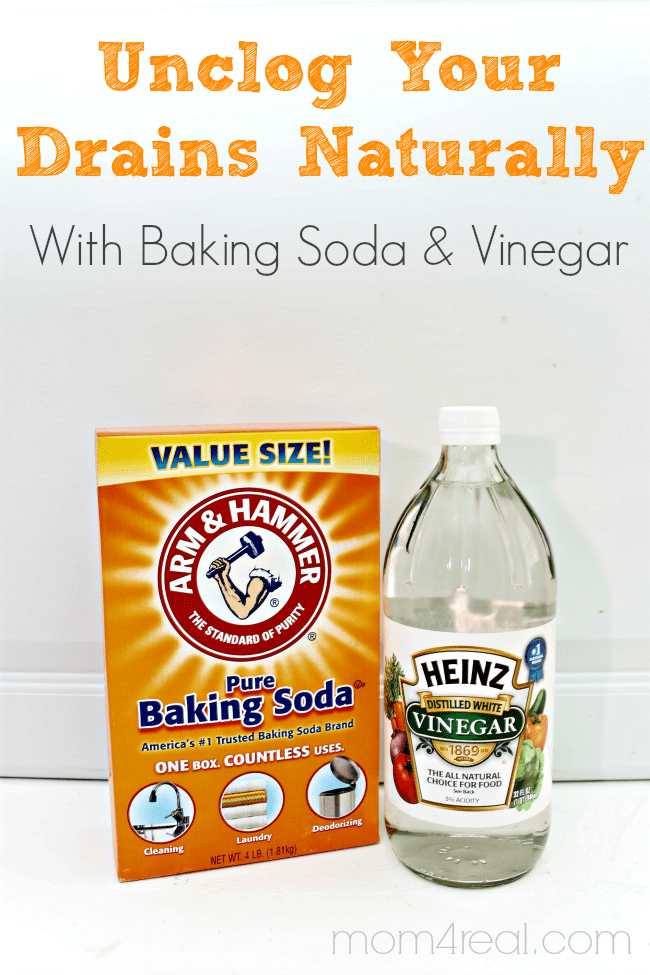
Unclog Drains Naturally With Baking Soda And Vinegar Mom 4 Real

Why You Should Never Use Baking Soda And Vinegar To Clean Clogged Drains

Quick Tips To Unclog A Bathtub Drain Without Chemicals Plumbing Authority Inc

How To Clear A Clogged Drain With Vinegar 10 Steps

How To Unclog A Bathtub Drain Without Chemicals

One Simple Trick To Unclog Your Tub Drain The Creek Line House
Related Posts

